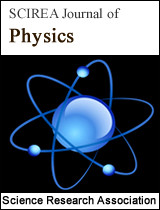Phase Lag Elimination for State Estimation
DOI: 364 Downloads 17533 Views
Author(s)
Abstract
This research paper describes a development to eliminate phase lag permitting a single commercially available sensor (Global Positioning System, GPS receiver) to provide full-state knowledge (including angular acceleration), eliminating the need for accelerometers, rate gyros, and other sensors. GPS position data is used to provide full-state estimates using high gain observers, and two topologies (Gopinath and Luenberger) are examined and compared, and example preferred design choices are discussed. Observer gain tuning is illustrated and assertions are evaluated via simulations. A major weakness of feedback state observers if phase lag (90 degrees per unit of system order) so in particular, novel methods are introduced to achieve near-zero phase lag state estimation at all frequencies.
Keywords
Topologies; estimation; Gopinath; Luenberger; phase lag, full state feedback; GPS
Cite this paper
Timothy Sands,
Phase Lag Elimination for State Estimation
, SCIREA Journal of Physics.
Volume 3, Issue 1, February 2018 | PP. 1-26.
References
| [ 1 ] | GPS.GOV website: Official Government information about the global positioning system: http://www.gps.gov/applications/space/ |
| [ 2 ] | R. Stengel coursenotes, MAE342 Space System Design, Princeton University; available at http://www.princeton.edu/~stengel/MAE342Lecture13.pdf. |
| [ 3 ] | Larson, Wertz, Space Mission Analysis and Design, Third Ed., Microcosm Press, El Segundo, 1999 |
| [ 4 ] | http://www.nasa.gov/topics/technology/features/navigator-gps.html |
| [ 5 ] | Quinn, David A. 2003. GPS compound eye attitude and navigation sensor and method. U.S. Patent 6594582 B1, filed May 12, 2000, and issued Jul 15, 2003. |
| [ 6 ] | Crassidis, J.L., and Lightsey E.G., “Attitude Determination Using Combined GPS and Three-Axis Magnetometer Data,” Space Technology, Vol. 22, No. 4, 2001, pp. 147-156. |
| [ 7 ] | http://www.acsu.buffalo.edu/~johnc/gps.htm |
| [ 8 ] | NASA Goddard Innovative Technology Partnerships Office homepage: http://techtransfer.gsfc.nasa.gov/ft_tech_gps_doppler.shtm |
| [ 9 ] | Campbell; Charles E., 2003. Using the global positioning satellite system to determine attitude rates using doppler effects. U.S. Patent 6,593,879, filed August 9, 2001, and issued July 15, 2003. |
| [ 10 ] | Beer, Johnston, Mazurek, Cornwell, Eisenberg, Vector Mechanics for Engineers 9th Edition, McGraw-Hill, 2010. |
| [ 11 ] | Q.P. Chu, P. Van Woerkom, “GPS for low-cost attitude determination: A review of concepts, in-flight experiences, and current developments”, Acta Astronautica, Volume 41, Issues 4–10, August–November 1997, Pages 421–433. |
| [ 12 ] | Lightsey, E.G., Ketchum, E., Flatley, T.W., Crassidis, J.L., Freesland, D., Reiss, K., and Young, D., “Flight Results of GPS Based Attitude Control on the REX II Spacecraft,” ION-GPS-96, Kansas City, MO, Sept. 1996, pp. 1037-1046. |
| [ 13 ] | J.C. Springmann, J.W. Cutler, “Flight results of a low-cost attitude determination system”, Acta Astronautica, Volume 99, June–July 2014, Pages 201–214. |
| [ 14 ] | C. Duncan, "GPS On A Chip" -- An Advanced GPS Receiver for Spacecraft, NASA research paper, 1998. Available at: http://trs-new.jpl.nasa.gov/dspace/bitstream/2014/20504/1/98-1493.pdf |
| [ 15 ] | Sands, T., "Physics-Based Control Methods," book chapter in Advancements in Spacecraft Systems and Orbit Determination, edited by Rushi Ghadawala, Rijeka: In-Tech Publishers, pp. 29-54, 2012. |
| [ 16 ] | T. Mekky A. Habib , “Combined spacecraft orbit and attitude control through extended Kalman filtering of magnetometer, gyro, and GPS measurements”, The Egyptian Journal of Remote Sensing and Space Science, 20 January 2014. |
| [ 17 ] | www.esa.int/esapub/bulletin/.../gerner104.pdf |
| [ 18 ] | Surrey Satellite Technology US, LLC catalog: http://www.sst-us.com/shop/satellite-subsystems/gps/sgr-05u-space-gps-receiver |
| [ 19 ] | Spacequest catalog: http://www.spacequest.com/products/GPS-12-V1.pdf |

